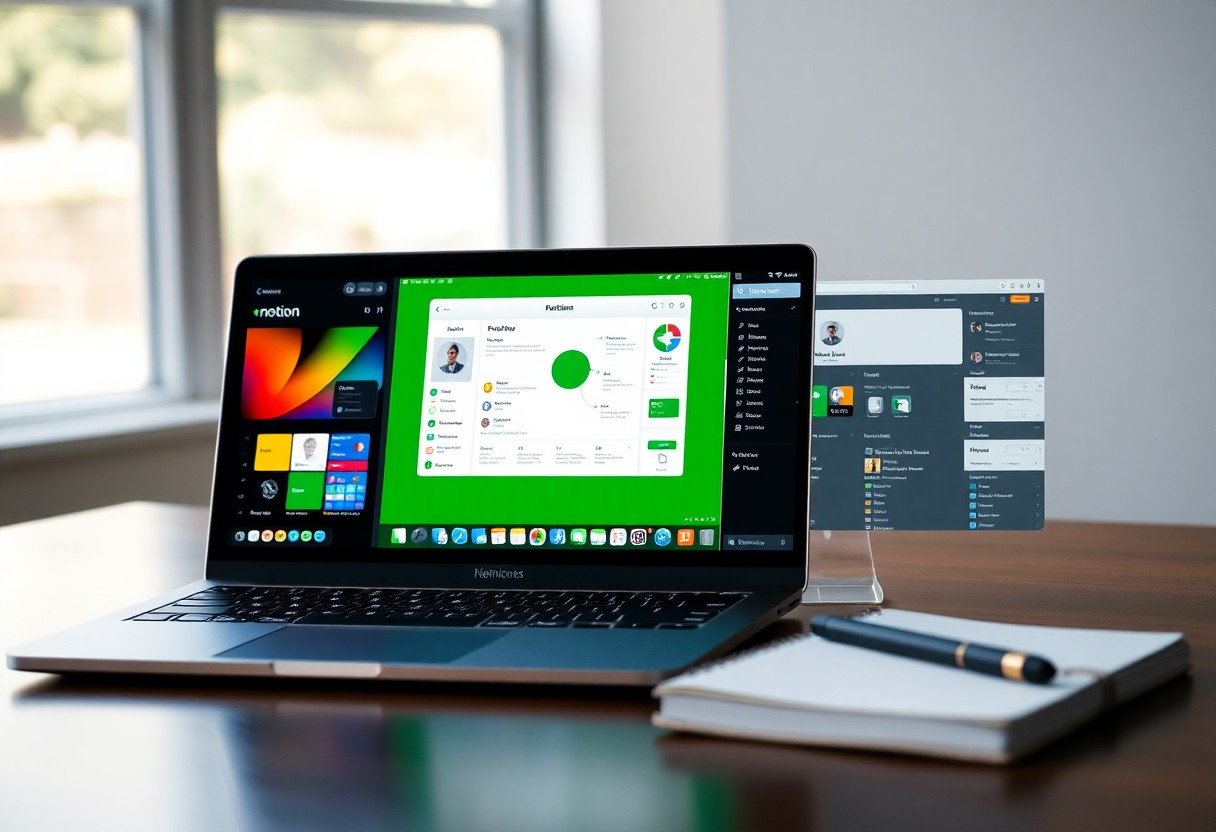The Evolution of Digital Note-Taking
The landscape of digital note-taking has transformed dramatically, with these three platforms emerging as leading solutions for managing information in our increasingly digital world. Each platform offers unique approaches to capturing, organizing, and sharing information, catering to different user needs and workflows. Understanding their distinct features helps in choosing the right tool for your specific requirements.
Notion: The Modern Workspace
Notion has revolutionized digital note-taking by offering a highly flexible system that functions more like a personal operating system than a traditional note-taking app. Its block-based architecture allows users to create dynamic workspaces combining notes, databases, kanban boards, and wikis. The platform excels in project management and team collaboration, making it particularly valuable for organizations that need to combine documentation with project tracking.
Evernote: The Reliable Classic
Evernote continues to stand out for its robust organization system and powerful search capabilities. The platform’s strength lies in its ability to handle various content types while maintaining a straightforward, intuitive interface. Its web clipper remains industry-leading, allowing users to save and organize online content efficiently. The platform’s optical character recognition (OCR) capabilities make it exceptional for digitizing and searching through scanned documents.
OneNote: The Microsoft Integration Champion
OneNote’s deep integration with the Microsoft ecosystem provides unmatched advantages for users invested in the Office suite. Its familiar interface and notebook-style organization make it particularly appealing to users transitioning from physical notebooks to digital note-taking. The platform’s inking capabilities and support for mathematical equations make it especially valuable for students and academic professionals.
Feature Comparison
Each platform brings unique strengths to the table in terms of organization and structure. Notion’s block-based system offers unprecedented customization options, allowing users to create exactly the workspace they need. Evernote maintains its traditional notebook and tag hierarchies, providing a familiar and proven organization method. OneNote’s approach mirrors physical notebooks, making it intuitive for users who appreciate traditional note-taking methods.
Collaboration and Integration
The collaboration capabilities of these platforms vary significantly. Notion leads the pack with its real-time collaboration features and comprehensive team functionality. Evernote focuses on note sharing and basic collaboration tools, perfect for smaller teams or individual users who occasionally need to share information. OneNote’s integration with Microsoft Teams creates a seamless experience for organizations already using Microsoft’s suite of tools.

Search and Organization
When it comes to finding information quickly, each platform has developed sophisticated search capabilities. Evernote’s powerful search engine extends to text within images and attachments. Notion’s database features allow for complex filtering and multiple views of the same information. OneNote provides comprehensive search across all notebooks, making it easy to locate specific information regardless of where it’s stored.
Price Considerations in 2025
The current pricing landscape reflects each platform’s market positioning and feature set. Notion offers a generous free plan with advanced team features available in paid tiers. Evernote maintains its freemium model, with advanced features requiring a subscription. OneNote provides comprehensive features at no additional cost for Microsoft 365 subscribers, making it an economical choice for users already in the Microsoft ecosystem.
Making the Right Choice
Selecting the ideal note-taking app depends heavily on your specific workflow and needs. Notion shines in situations requiring flexible workspaces and team collaboration. Evernote excels at personal information management and research organization. OneNote proves invaluable for users deeply integrated into the Microsoft environment, especially in academic or professional settings.
Future-Proofing Your Choice
When selecting a note-taking platform, consider how these tools continue to evolve with new features and capabilities. Notion’s expanding ecosystem, Evernote’s stability, and OneNote’s Microsoft backing ensure long-term viability. Your choice should align not only with current needs but also anticipate future requirements as digital note-taking continues to advance.
Conclusion
The best platform choice ultimately depends on your specific workflow and requirements. Consider experimenting with the free versions of each platform to experience their unique approaches to digital note-taking. Remember that the goal is finding a tool that enhances your productivity without adding unnecessary complexity to your workflow. The ideal solution should feel natural and supportive of your working style while providing the features you need most.

